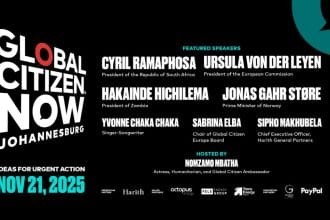South Africa is preparing to introduce a new Electronic Travel Authorisation (ETA) system, a digital visa solution designed to streamline travel authorisations and strengthen the country’s tourism industry.
The announcement was made by Home Affairs Minister Leon Schreiber during the Tourism Business Council of South Africa’s Leadership Conference last week. According to Schreiber, the ETA will remove long-standing visa hurdles that have restricted growth in tourism, while simultaneously upgrading the security of immigration processes.
“Instead of long queues, paper-based applications, and inefficiency, visitors will now get their first impression of South Africa when they apply online for an ETA,” he said.
Rollout Timeline
The system will undergo user acceptance testing at the end of September 2025, with the first phase of implementation scheduled for mid-October. This phase will initially cover G20 delegates from China, India, Indonesia, and Mexico who arrive at OR Tambo and Cape Town international airports.
In November 2025, the ETA will expand to all tourists from these four countries. Once fully tested and stable, the ETA platform will be rolled out as a universal entry point for visitors from all visa-required nations.
The ETA will integrate with South Africa’s upgraded Electronic Movement Control System, using biometric verification and automated checks to cut down on waiting times at entry points. Longer-term plans include extending the system to other visa categories and implementing automated entry and exit based on facial recognition technology across all ports of entry.
Supporting Digital Visa Schemes
The Department of Home Affairs has already piloted several online visa initiatives in 2025. Among them are:
- Trusted Tour Operator Scheme (TTOS): Allows accredited tour operators to manage visa applications on behalf of their clients.
- Meetings, Events, Exhibitions, and Tourism Scheme (MEETS): Streamlines entry for participants of large-scale conferences, sports events, and exhibitions.
- Screen Talent and Global Entertainment Scheme (STAGES): Simplifies visa processes for international entertainment professionals.
Schreiber revealed that South Africa previously missed out on a R400 million Netflix production due to visa bottlenecks, a loss that STAGES now seeks to prevent.
Industry leaders have welcomed these initiatives. Rosemary Anderson, chairperson of the Federated Hospitality Association of South Africa (Fedhasa), praised the schemes as “powerful economic enablers” that demonstrate South Africa’s commitment to being open for global business.
Related article: More Banks Join Home Affairs’ Digital Push for IDs and Passports













